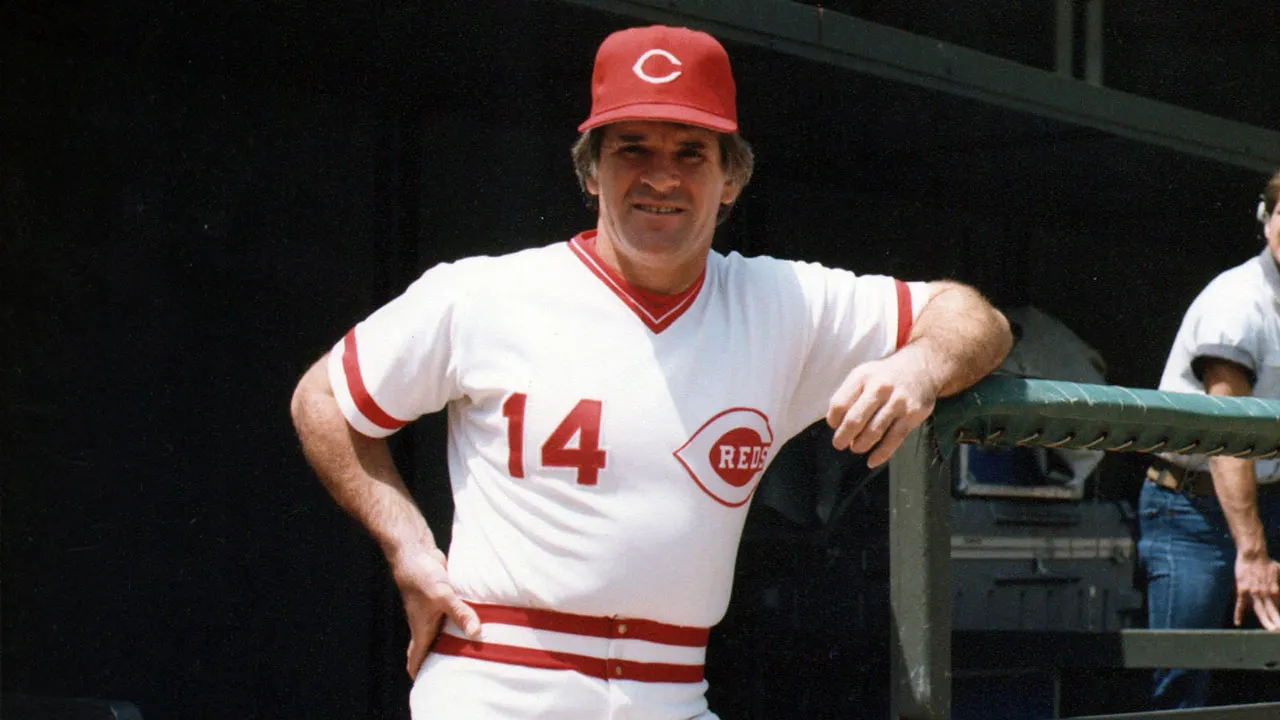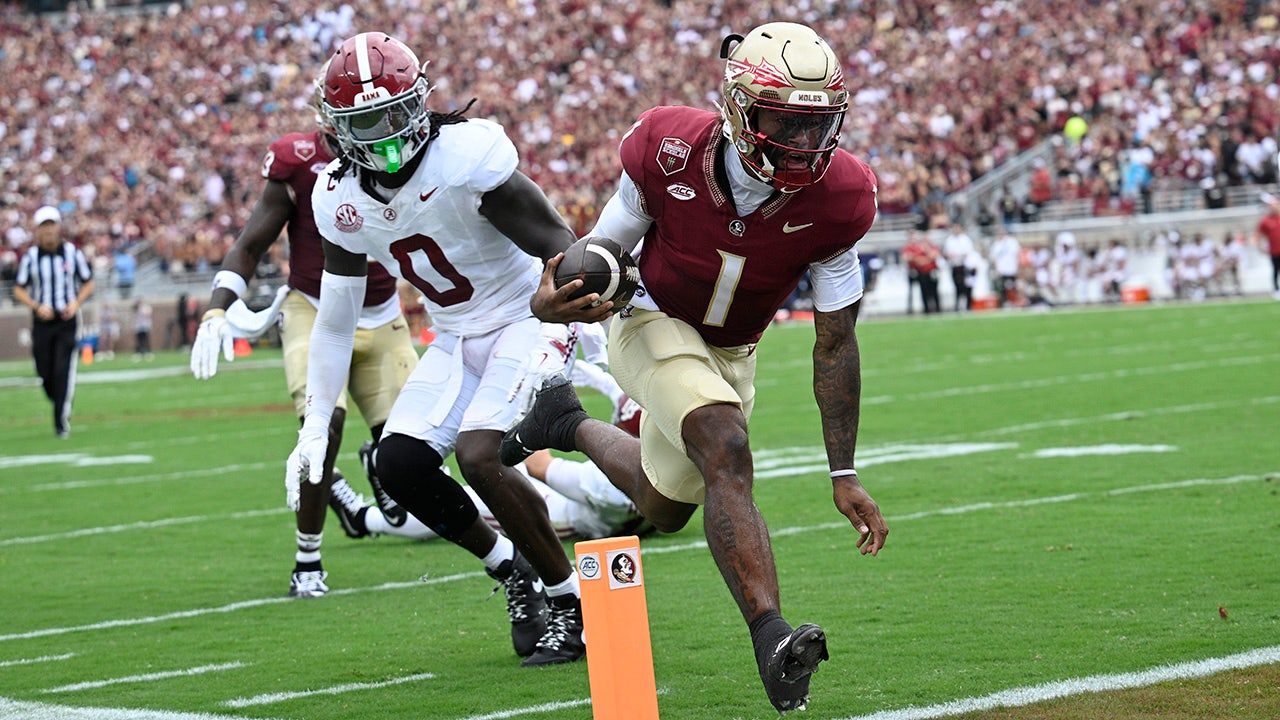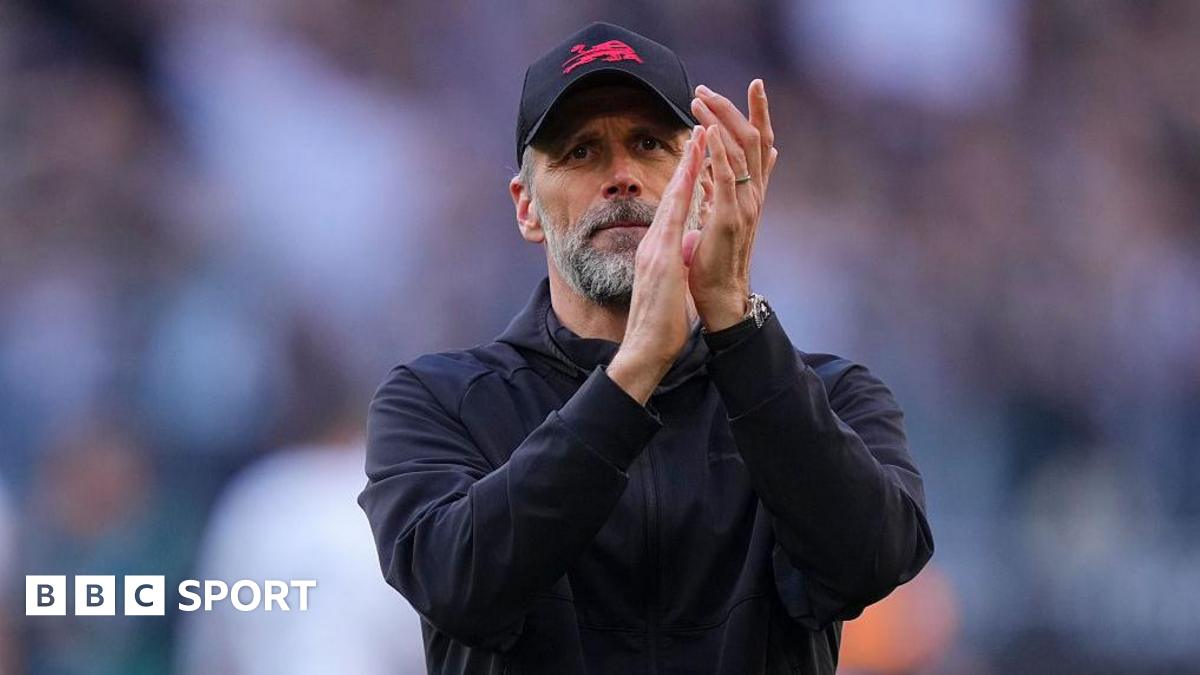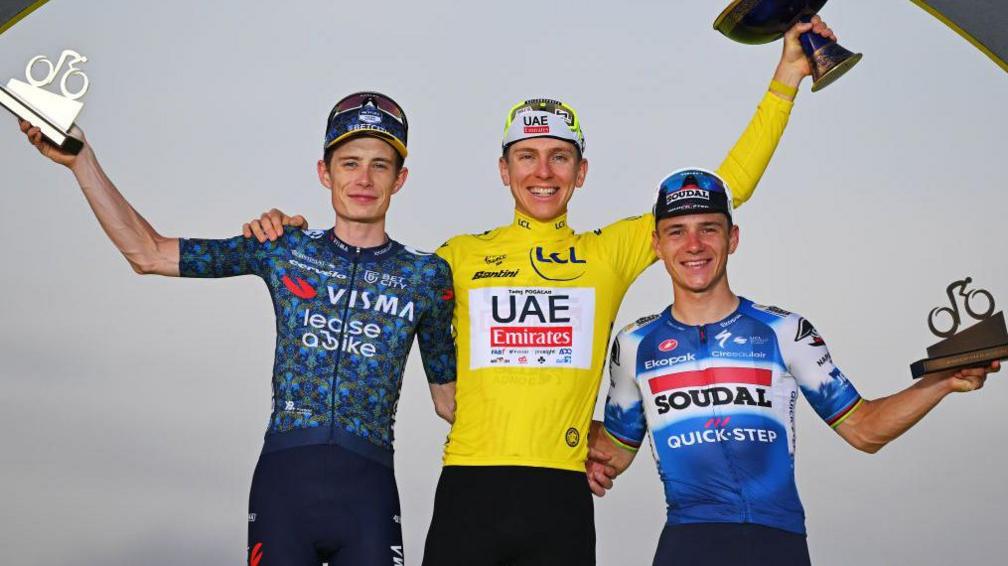
Tadej Pogacar (centre) is aiming to win his fourth Tour de France
The 112th edition of the Tour de France gets under way in Lille on Saturday with the three-week race ending on the Champs-Elysees in Paris on Sunday, 27 July.
The riders will tackle six mountain stages including trips to the Pyrenees and Alps during the gruelling 3,320km (2,063-mile) race.
There will also be two individual time trials, with the second featuring the steep climb up to the Altiport in Peyragudes.
BBC Sport looks at all 21 stages of La Grande Boucle analysing where it could be won and lost.
This page will be updated throughout the Tour with the winner and a brief report following each stage.
Saturday, 5 July – stage one: Lille Metropole – Lille Metropole, 184.9km
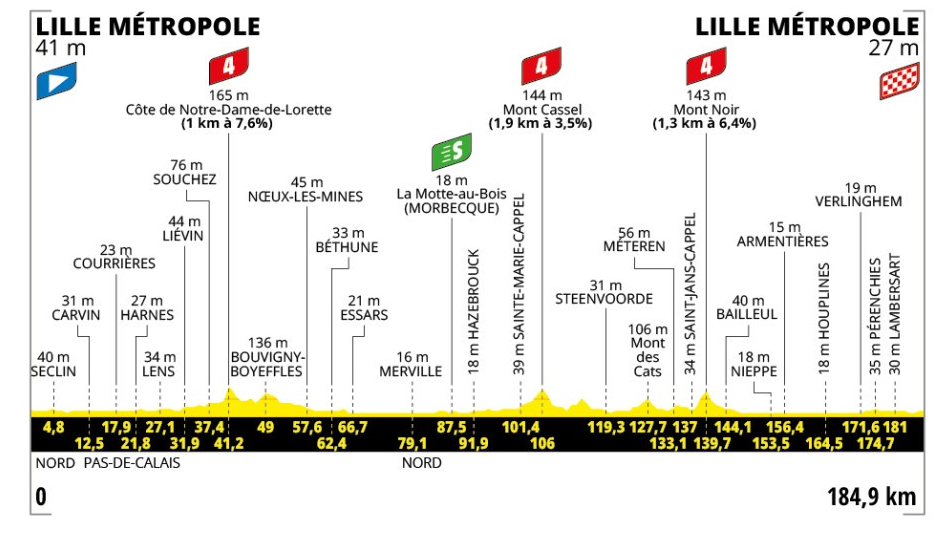
The last Tour de France stage winner in Lille was Marcel Kittel in 2014
The Grand Depart takes place in France or the first time since 2021 with a relatively flat route around Lille served up for starters.
That should mean the sprinters will get an early opportunity to take centre stage on the final straight below the Citadel.
The finish in Lille will also be one of seven with extended safety zones in this year’s Tour with the usual three-kilometre buffer at the end of each stage, increased to 5km to take the pressure off the peloton.
Sunday, 6 July – stage two: Lauwin-Planque – Boulogne-sur-Mer, 209.1 km
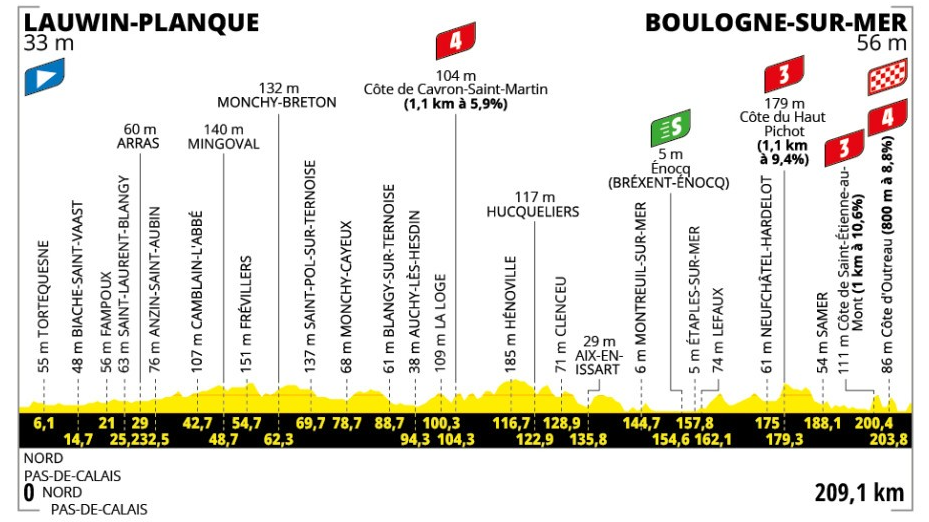
The previous three stage finishes in Boulogne-sur-Merwere decided by a sprint
The second stage is also the longest in this year’s race covering 209.1km with the peloton making their way through the countryside of the Hauts-de-France region, heading towards the Strait of Dover.
A rolling route with a punchy finale looks ideally set up for the puncheurs, who will fancy their chances of ending the day in yellow.
Monday, 7 July – stage three: Valenciennes – Dunkirk, 178.3km
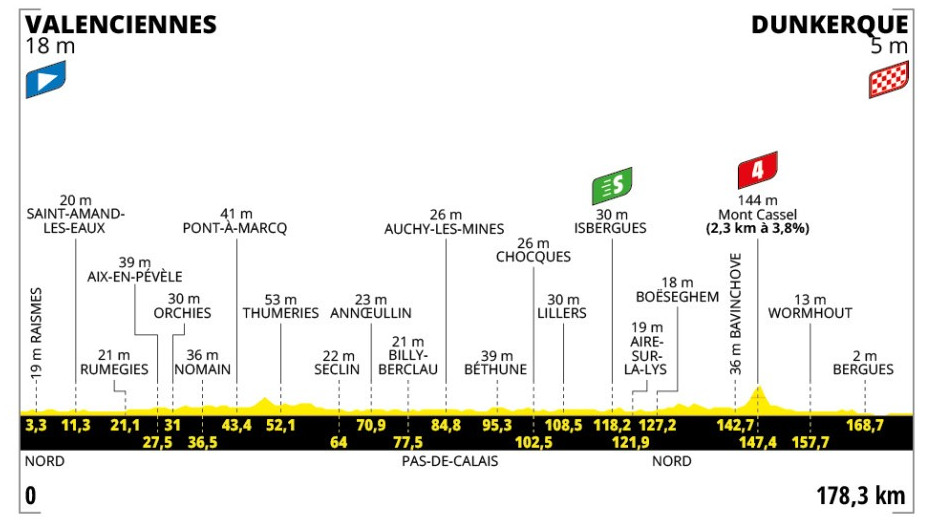
Dunkirk hosted the Grand Depart in 2001
This should be another good chance for the Tour’s fast men to shine.
However, a late cobbled climb to Cassel and the potential for crosswinds and echelons to form in the final 35km could spoil their day.
Tuesday, 8 July – stage four: Amiens Metropole -Rouen, 174.2km
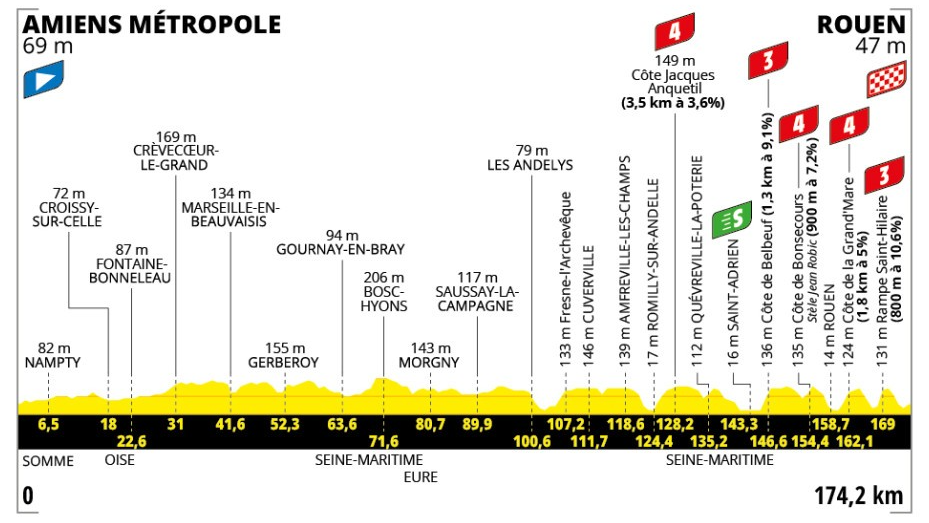
Jules Verne wrote Around the World in 80 Days in Amiens
Both Amiens and Rouen have been the preserve of sprinters in previous editions of the Tour but that will not be the case this time around.
The trip into Normandy comes with a relentless up-and-down stretch in the final 50km where explosive climbing and skilful descending will likely come to the fore and allow the specialists over that terrain to target victory.
Wednesday, 9 July – stage five: Caen – Caen, 33km
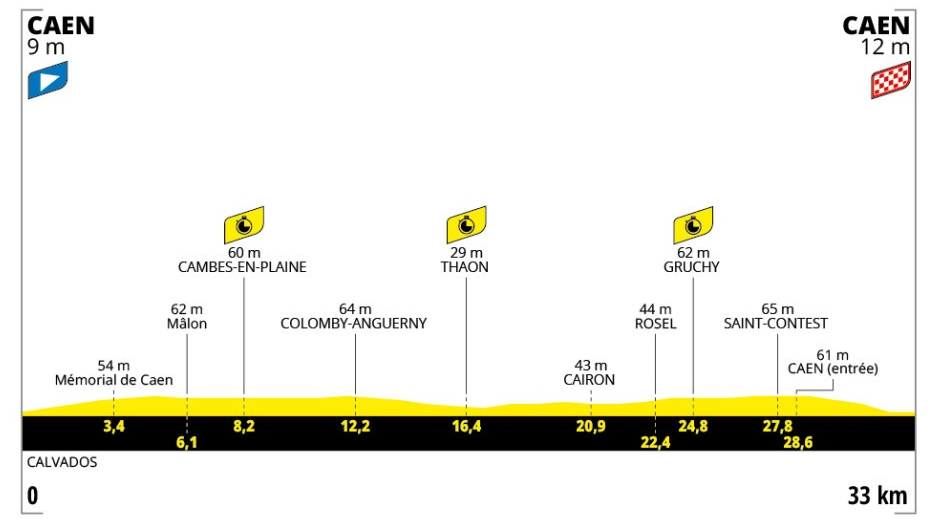
Caen is also known as ‘the city of a hundred bell towers’
The first of two individual time trials arrives on wide and completely flat roads of Caen.
The strongest rouleurs should be in their element on a stage designed for time-trial specialists like Remco Evenepoel and Filippo Ganna.
Thursday 10 July – stage six: Bayeux – Vire Normandie, 201.5 km
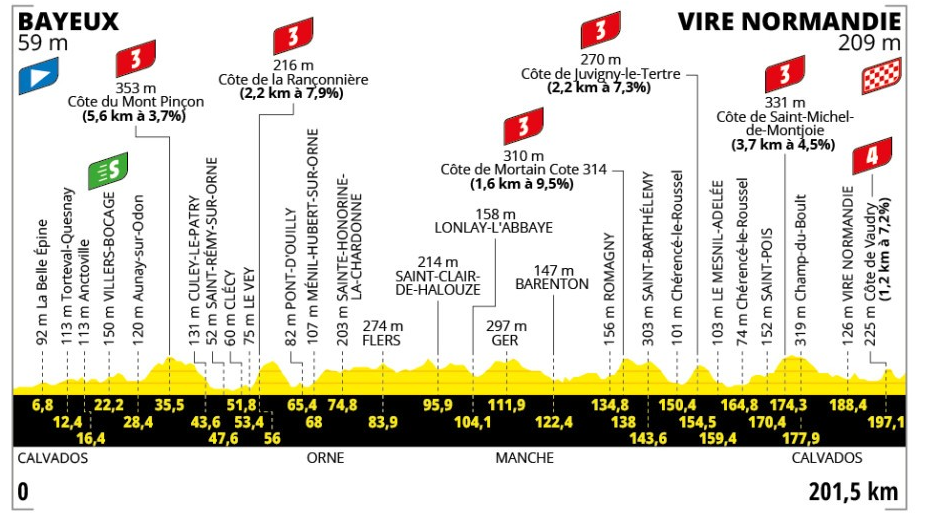
This is the sixth time Vire will have featured on the Tour de France route
Six categorised climbs and more than 3,400m of vertical gain mean this is regarded as the most challenging flat stage in the Tour’s recent history.
A difficult day in the saddle concludes with a 700m-long 10% ascent to the finish line.
Friday, 11 July – stage seven: Saint-Malo – Mur-de-Bretagne Guerledan, 197 km
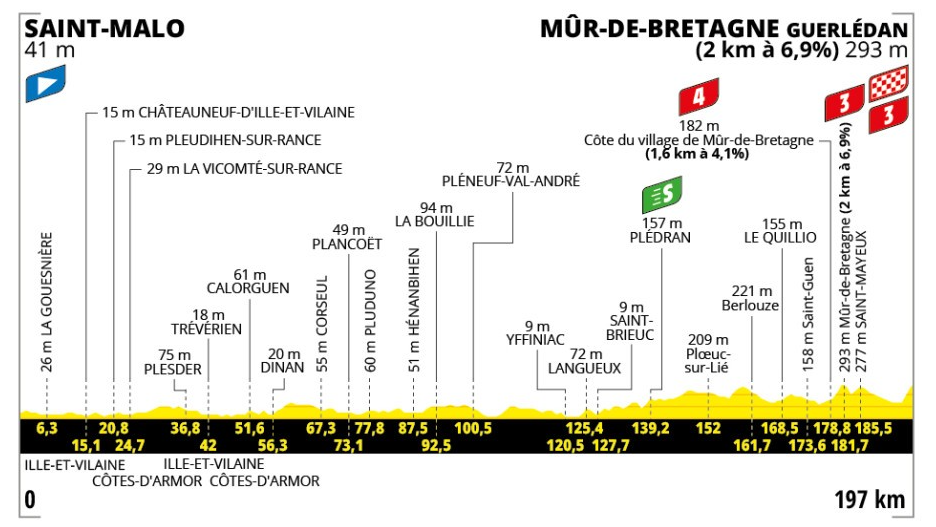
Mathieu van der Poel won his first Tour stage on the Mur-de-Bretagne in 2021
The race passes through the home village of five-time winner Bernard Hinault during a relatively tame opening 175km of stage seven.
However, expect bedlam as the finishing line approaches with a closing circuit that mirrors the 2021 stage.
The Mur-de-Bretagne, which ramps up above 10% features twice and explosiveness and tactical nous will determine how things play out.
Saturday, 12 July – stage eight: Saint-Meen-le-Grand – Laval Espace Mayenne, 171.4 km
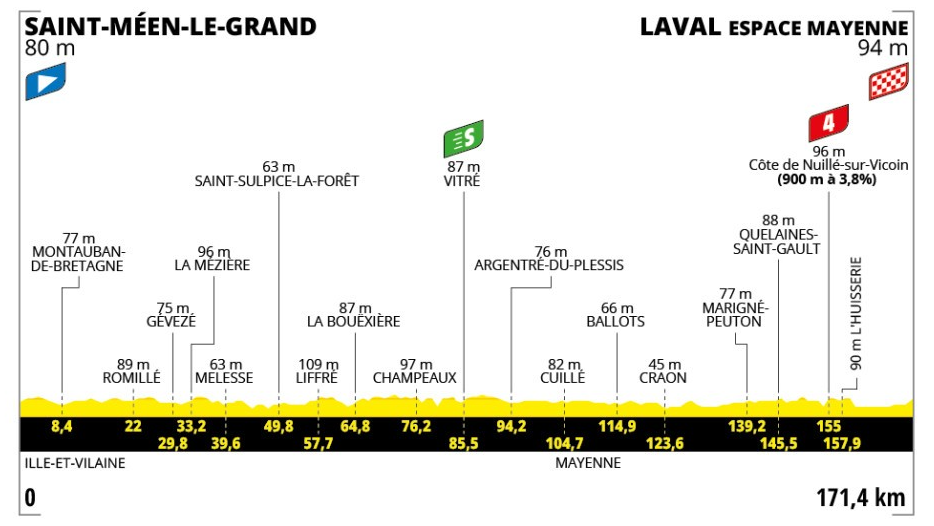
Laval is the birthplace of three-time Tour stage winner Jacky Durand
A largely flat stage with an occasional gentle rise plus a relatively straight final three kilometres in towards the finishing line marks this as a day for the sprinters.
Sunday, 13 July – stage nine: Chinon – Chateauroux, 174.1km
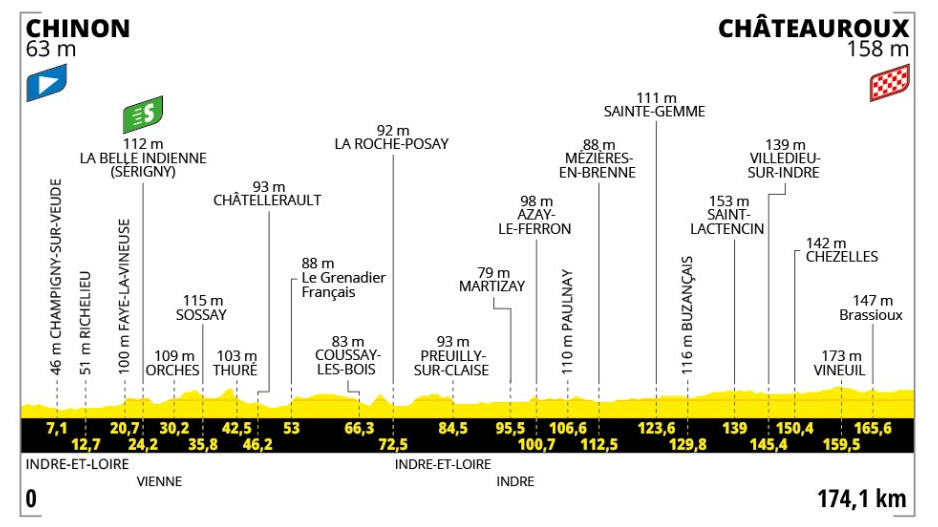
Mark Cavendish won three of his 35 stages in Chateauroux
When you think of Chateauroux one rider immediately springs to mind – Mark Cavendish.
The first of the Manx Missile’s record 35 stage wins arrived in the city in 2008 and he repeated that success on the Avenue de la Chatre in 2011 and 2021.
And with a relatively simple parcours a bunch sprint will almost certainly be on the menu when the peloton embarks from the historic town of Chinon which is known for its wine.
Monday, 14 July – stage 10: Ennezat – Le Mont-Dore Puy de Sancy, 165.3 km
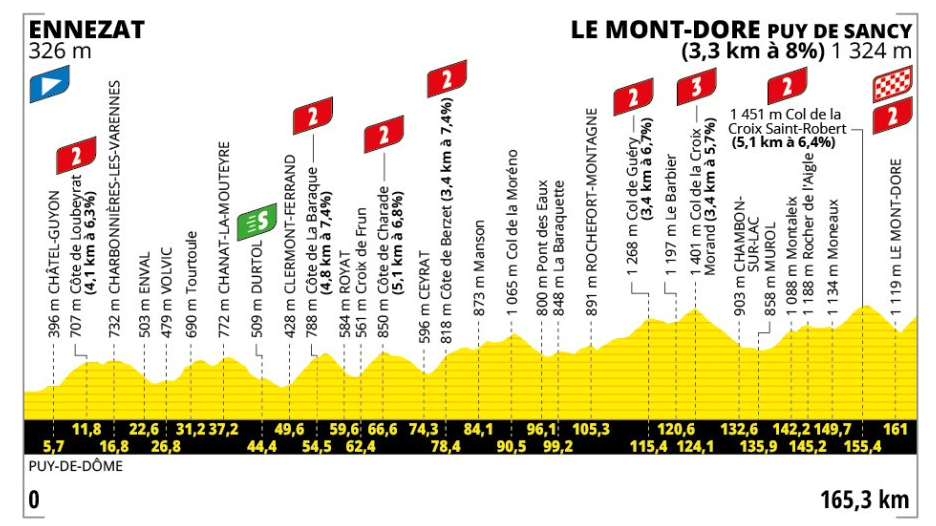
The last French rider to win on Bastille Day was Warren Barguil in 2017
While the 4,400m of elevation gain across seven category-two climbs and a category-three ascent is likely to put the sprinters in trouble almost from the start, the general classification contenders are likely to keep their powder dry on a stage that looks made for the breakaway specialists.
There will likely be a strong posse of home riders trying to get in any group heading up the road with the objective of becoming the first French stage winner on Bastille Day since Warren Barguil in 2017.
The first trip into the mountains should provide a decent shake up of the GC standings although it unlikely to cause any of the main favourites issues.
Wednesday, 16 July – stage 11: Toulouse – Toulouse, 156.8km
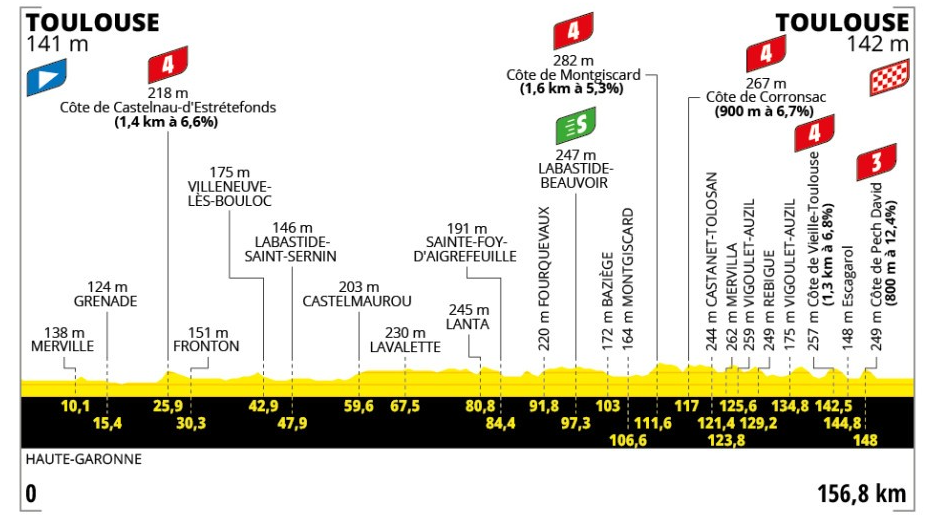
Caleb Ewan won the stage last time the Tour visited Toulouse in 2019
Following a rest day, stage 11 offers a gentle return to racing although the concluding 16km contains two kickers that could alter the composition of any fast finish to the line on Boulevard Lascrosses.
Thursday, 17 July – stage 12: Auch – Hautacam, 180.6km
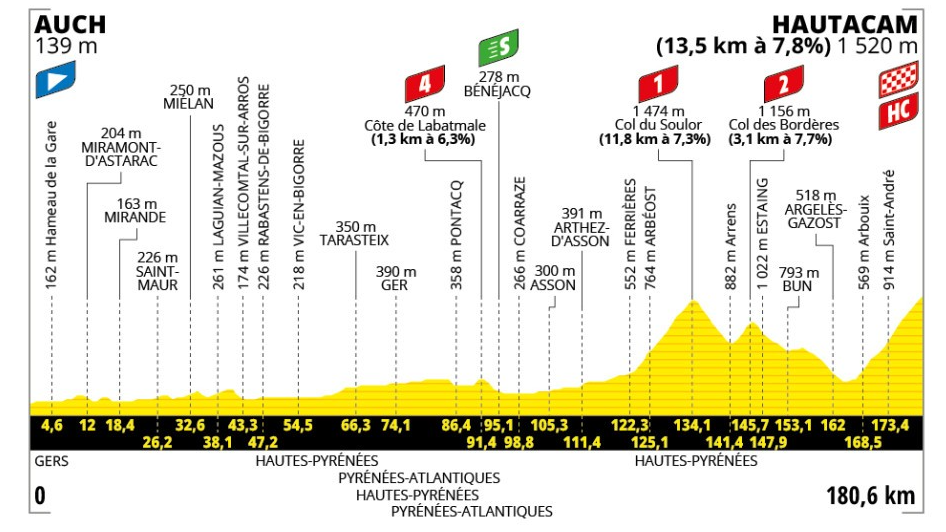
Six stage finishes have taken place at Hautacam
The first real big day in the mountains could see fireworks in the GC race.
The route up to the ski resort at Hautacam on the roads above Lourdes takes the peloton on the route where five-time champion Miguel Indurain tore the race (and his rivals) apart in 1994.
More recently, Jonas Vingegaard rode away from Tadej Pogacar in 2022 on his way to his first overall Tour victory.
Friday, 18 July – stage 13: Loudenvielle – Peyragudes 10.9km
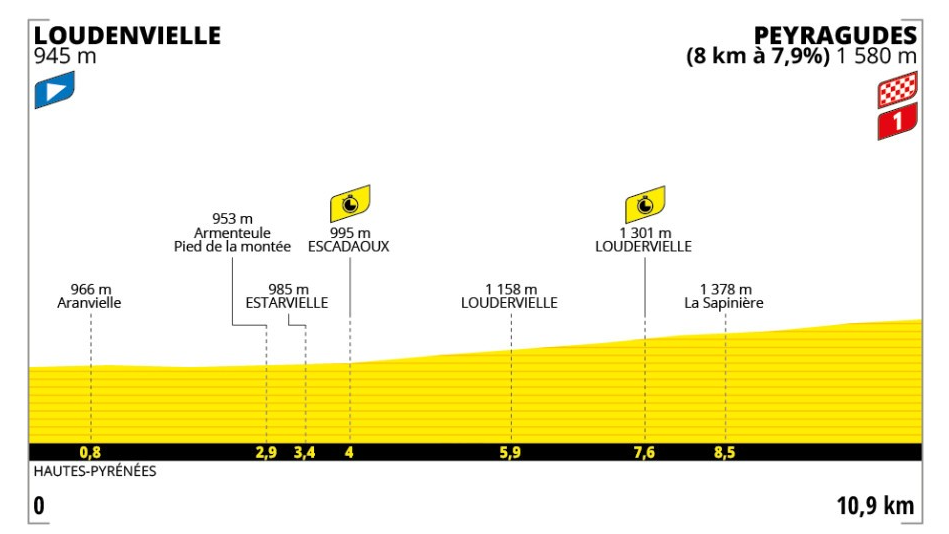
The airport runway in Peyragudes was used in a scene in the James Bond movie Tomorrow Never Dies
An individual time trial takes the riders from the valley floor up to the runway of Altiport 007 in Peyragudes.
After a flat start, there will be over 8km uphill and no hiding place for the GC favourites in the race of truth.
A gradient of 7.8% ramps up to a punishing 13% in the final kilometre and it could provide a strong indicator of who will be wearing the yellow jersey in Paris.
Saturday, 19 July – stage 14: Pau – Luchon-Superbagneres, 182.6 km
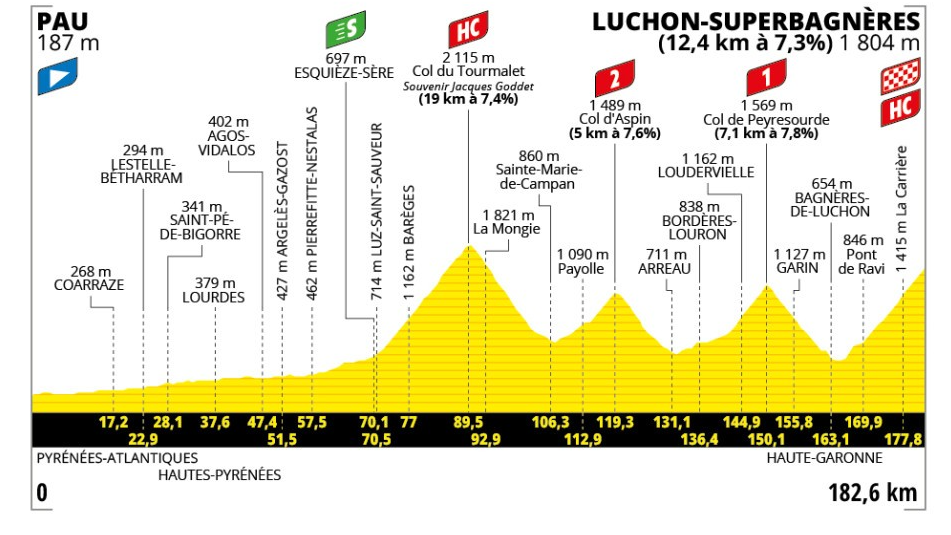
Superbagneres hasn’t hosted the Tour for 36 years
A classic and mouth-watering mountain stage in the Pyrenees arrives at the end of week two.
Nearly 5,000m of elevation gain is packed into climbs up the mighty hors-categorie Tourmalet followed by the Col d’Aspin and Col de Peyresourde.
On a day when the GC riders will be need to be at their very best, the strongest climbers will have their focus on the fight for the King of the Mountains jersey and hope to contest the stage on the pull up to the ski resort of Luchon-Superbagneres.
The gruelling 12.4km slog at 7.3%, which rises up to 10% in a couple of sections, should be the scene for an epic battle in the race for yellow.
Sunday, 20 July – stage 15: Muret – Carcassonne 169.3km
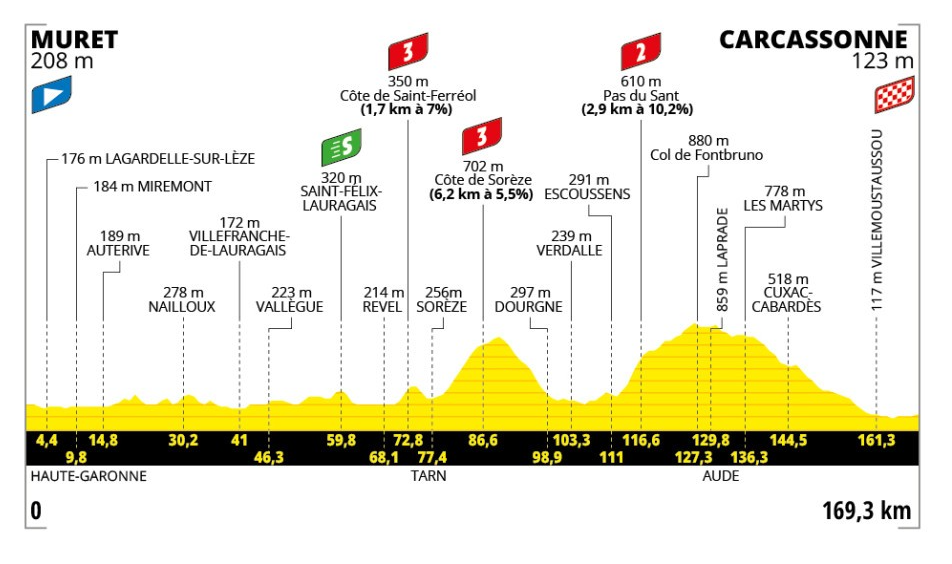
Jasper Philipsen won the first of his eight Tour stage victories in Carcassonne in 2022
A transitional stage arrives as the race heads from the Pyrenees towards the Alps, which looks suited to the strongman sprinters who can cope with some climbing.
The likes of Wout van Aert and Biniam Girmay should view this a potential chance triumph in the medieval finishing town of Carcassonne.
Tuesday, 22 July – stage 16: Montpellier – Mont Ventoux, 171.5km
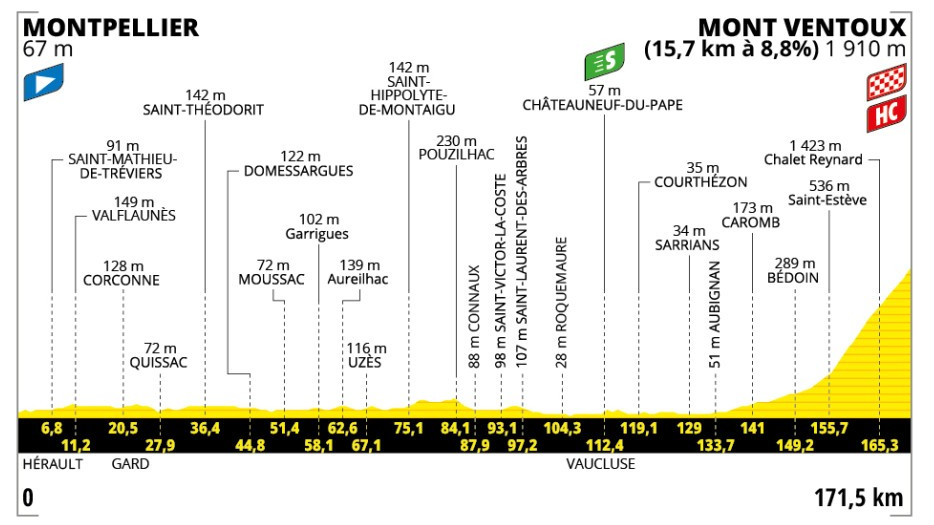
Chris Froome is the only British rider to have won a stage on Mont Ventoux in the Tour de France
Stage 16 is a flat route until one of the most legendary mountains in Tour history comes into view at the end with the potential to turn the race on its head.
With no categorised climbs all day before Mont Ventoux, and the intermediate sprint featuring 112km into the stage, it would be no surprise if the peloton remains largely intact until then.
In 2016, strong winds meant the finish was moved to Chalet Reynard halfway up the climb as Thomas de Gendt won from the breakaway and drama unfolded on the slopes behind with the yellow jersey, Chris Froome, initially running up the mountain after a crash.
Wednesday, 23 July – stage 17: Bollene – Valence, 160.4km
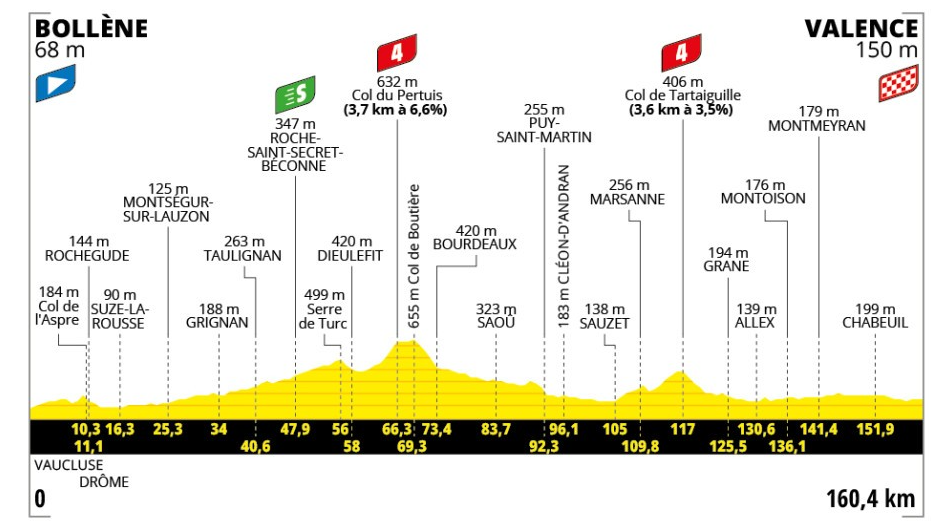
The Tour is stopping in Valence for the fourth time in 10 years
With two big Alpine tests still to come the GC teams will probably play second fiddle to the sprint teams when it comes to trying to rein in any breakaways.
The last three winners of a Tour stage in Valence were Mark Cavendish (2021), Peter Sagan (2018), and Andre Greipel (2015) and the only thing likely to prevent a bunch sprint is the mistral winds that can be fierce in the Rhone Valley.
Thursday, 24 July – stage 18: Vif – Courchevel Col de la Loze, 171.5km
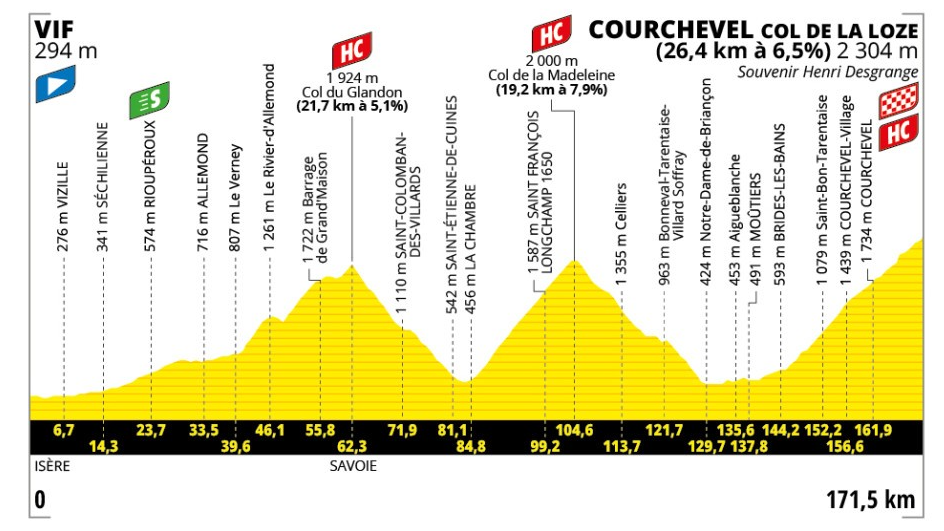
In 2023 Austria’s Felix Gall won the stage into Courchevel
This year’s queen stage comes with more than 5,500m of elevation across 171.5km of racing and three legendary climbs which makes it arguably the toughest run of the entire Tour.
All three ascents fall under the hors categorie, with the Col du Glandon, a 21.7km drag with with sections at double digits just for starters.
The Col de la Madeleine, is shorter but steeper and the while there is a rapid descent and the rises in the road come sharply again on the monstrous Col de la Loze, a climb of over 26km with gradients hitting 11% as the Tour reaches it’s highest point.
Friday, 25 July – stage 19: Albertville – La Plagne, 129.9km
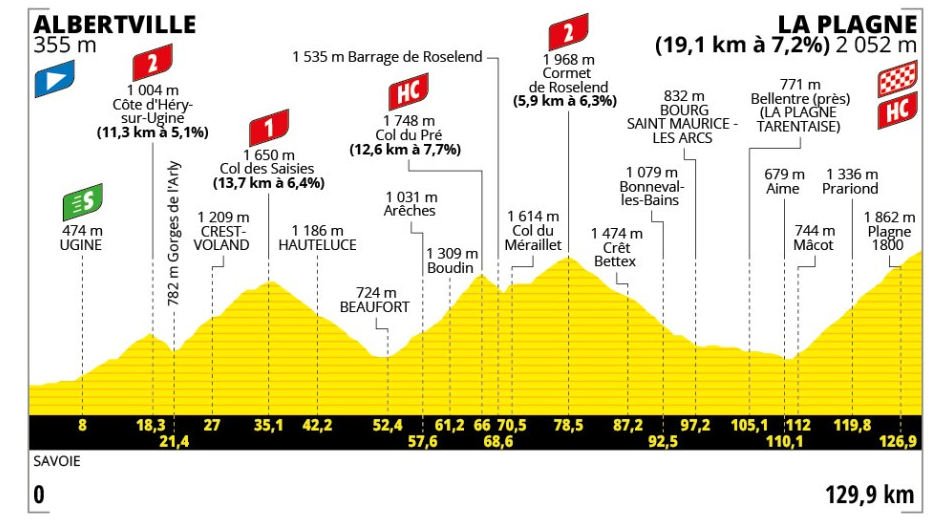
Albertville was the host city of the 1992 Winter Olympics
The last real mountain stage represents the final opportunity for those high in the GC standings to make a play for the yellow jersey.
The route from Albertville to La Plagne covers almost 130km, and includes five leg-sapping ascents.
Plenty of points will be up for grabs again in the race for the the polka-dot jersey points available but this is really a last-chance saloon in terms of the overall race.
Whoever is leading at end of the day will be confident, that barring an unforseen disaster, they will be stood atop the podium, draped in yellow on the Champs-Elysees.
Saturday, 26 July, – stage 20: Nantua – Pontarlier, 184.2km
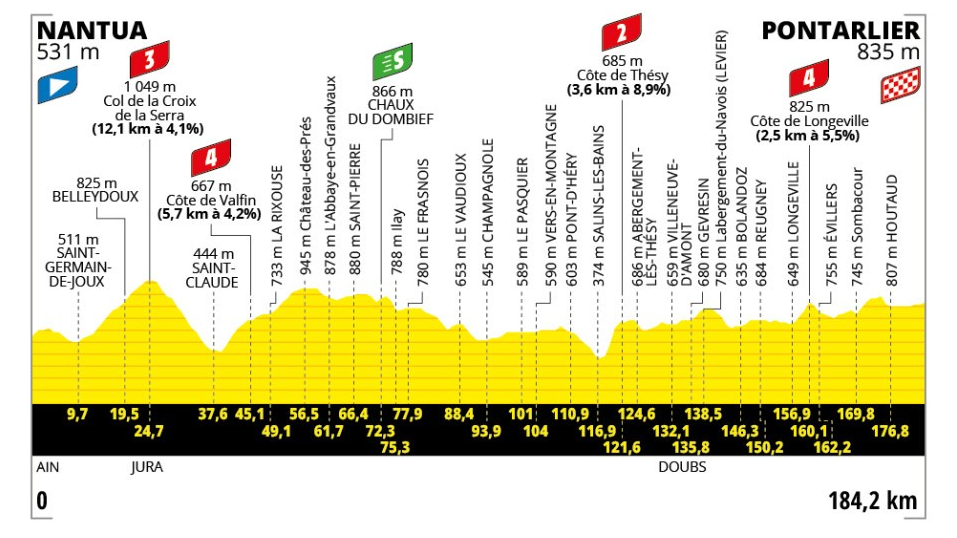
This is Pontarlier’s first Tour appearance since 2009, when Alberto Contador won the stage to Verbier
The penultimate stage sees the race snake over the hills of the Jura towards Pontarlier.
The rolling terrain should favour an escapee triumphing, while the GC teams protect their leaders.
Sunday, 27 July, – stage 21: Mantes-la-Ville – Paris Champs-Elysees, 132.3km
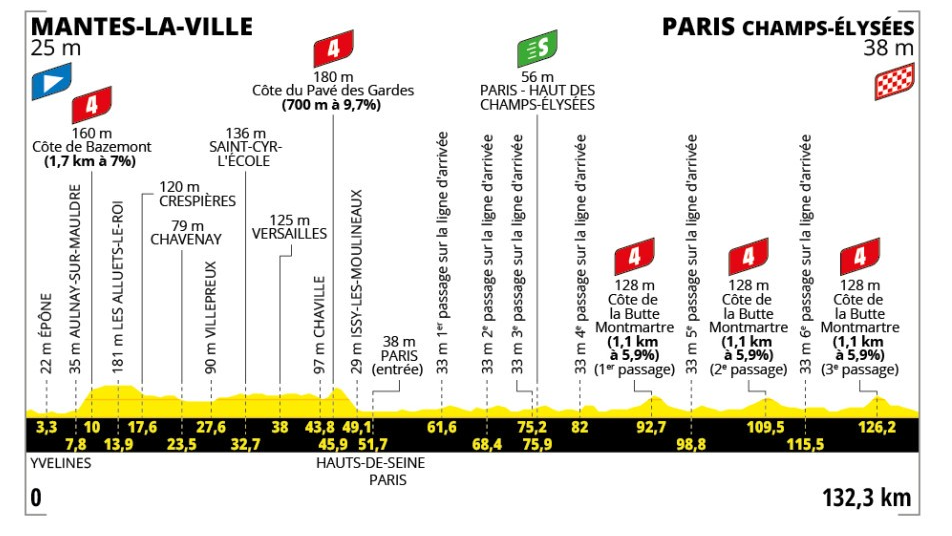
The Tour will be celebrating the 50th anniversary of its first finish on the Champs-Elysees
The Tour returns to it’s traditional Paris finish after relocating to Nice last year due to the Olympics.
However, it does so with a twist, given the cobbled climb up to the Sacre-Cœur Basilica features three times in a throwback to the road race in the 2024 Paris Games.
It’s a 1,1km ascent at a gradient of 5.9% added to the original finishing circuit in the French capital designed to whittle down the field before a high-speed finish albeit possibly without some of the pure sprinters.




